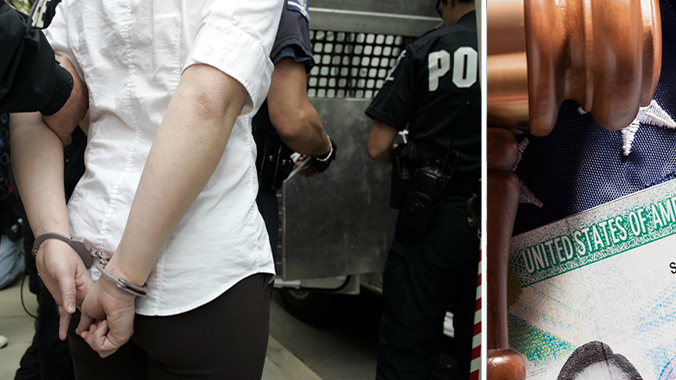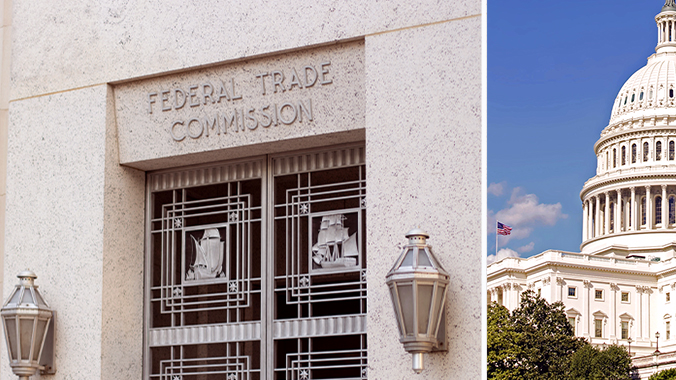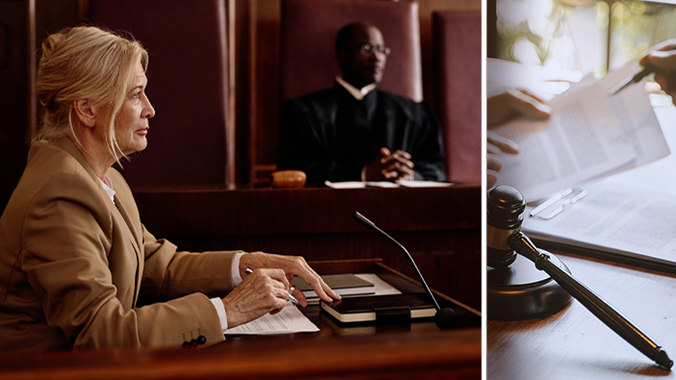When Clients Disappear or Otherwise Become Unavailable: Legal and Ethical Questions (and Answers)



1.5 hour CLE
Get this course, plus over 1,000+ live webinars.
Learn More
Program Summary
Although it does not happen very often, lawyers sometimes lose touch with their clients or face a situation where a client is unwilling or unable to participate in the representation. This can happen, for example, if the client dies, moves without notice to the lawyer, or simply stops responding to the lawyer’s (increasingly panicked) phone calls, e-mails, and letters. At some point, the lawyer will have no choice but to admit that the client has disappeared or no longer is willing to engage and take steps to deal with that situation. This program explains what a lawyer who finds themselves in such a situation is legally and ethically required to do, and what options are available. This program will explore key ethical obligations under the ABA Model Rules, including Rules 1.2, 1.4, 1.6, 1.14, 1.16, 3.3, 4.1, and 8.4, highlighting how they guide attorney conduct and decision-making in practice.
This course is co-sponsored with myLawCLE.
Key topics to be discussed:
- How and why clients may disappear or cease engagement
- Legal and ethical responsibilities of lawyers with clients in litigation matters who have ceased communication with counsel
- Legal and ethical responsibilities of lawyers in non-litigated matters who have ceased communication with counsel
- Legal and ethical challenges posed by clients who disappear or cease contact but later reappear
- Steps lawyers should take to ensure consistent contact with clients to ensure client availability and participation in the representation
![]() Closed-captioning available
Closed-captioning available
Speakers
 Brian S. Faughnan | Faughnan Law, PLLC
Brian S. Faughnan | Faughnan Law, PLLC
Brian is a frequent author and speaker on ethics and professional responsibility issues. He is a co-author of the book “Professional Responsibility in Litigation,” which is now in its Third Edition published by the ABA. He shares his thoughts on legal ethics, professional responsibility, and other aspects of the law of lawyering at www.faughnanonethics.com. He is currently a member of the ABA Standing Committee on Ethics and Professional Responsibility. Brian is also a former President of the Association of Professional Responsibility Lawyers and a former Chair of the Tennessee Bar Association’s Standing Committee on Ethics and Professional Responsibility.
Brian has been listed in The Best Lawyers in America for each of the last seventeen years and was named 2017 Appellate Practice “Lawyer of the Year” in Memphis by that publication. Brian is also listed as a “Super Lawyer” by Mid-South Super Lawyers and has an AV rating from Martindale Hubbell.
Brian S. Faughnan is a sole practitioner and owner of Faughnan Law, PLLC, located in Memphis, Tennessee. Prior to founding his own law firm, Brian practiced law for over twenty years in large and mid-sized full-service law firms. In addition to handling business litigation and appellate litigation, his practice focus involves solving problems for lawyers. Over the years, Brian has represented hundreds of lawyers in disciplinary matters, law firms and lawyers in litigation and other matters involving professional liability, and applicants for admission to practice in Tennessee. He has also served as an expert witness in a variety of matters in federal and state courts in Tennessee.
 Tim Chinaris | Belmont University College of Law
Tim Chinaris | Belmont University College of Law
Tim Chinaris is Professor Emeritus of Law with Belmont University College of Law in Nashville, Tennessee, where he taught courses in legal ethics, torts, insurance law, and other subjects. He is licensed to practice law in Alabama, Florida, Georgia, Tennessee, and Texas. Professor Chinaris was Ethics Director of the Florida Bar from 1989-1997, where he ran the popular “ethics hotline” service that answers more than 25,000 calls annually from bar members. He has chaired bar ethics and professionalism committees in Florida and other states and maintains the legal ethics website “sunEthics.com.” Now in full-time law practice, Professor Chinaris represents lawyers and others in a wide variety of ethics matters and serves as an expert witness in professional responsibility cases. He is “of counsel” to the ethics law firm of Smith, Tozian, Daniel, and Davis, P.A. in Tampa, Florida.
 Merri Baldwin | Rogers Joseph O’Donnell, PC
Merri Baldwin | Rogers Joseph O’Donnell, PC
Merri Baldwin is a shareholder at Rogers Joseph O’Donnell in San Francisco, where her practice focuses on attorney liability and commercial litigation. She handles claims of legal malpractice and breach of fiduciary duty, as well as motions to disqualify and for sanctions. She regularly counsels lawyers and law firms on legal ethics and law practice management issues. She represents attorneys in disciplinary matters before the State Bar of California and has extensive experience handling attorney-client fee disputes.
Ms. Baldwin is on the Board of Directors for the Association of Professional Responsibility Lawyers and she is a lecturer at the University of California at Berkeley School of Law where she teaches professional responsibility. She is a former chair of the State Bar of California Committee on Professional Responsibility and Conduct and is currently a member of the California Lawyers Association Ethics Committee. Ms. Baldwin is a co-chair of the Legal Malpractice subcommittee for the American Bar Association Litigation Section Committee on Professional Services Litigation. She served as the vice-chair of the California Bar’s Closing the Justice Gap Working Group. In 2017, Ms. Baldwin served as the President of the Bar Association of San Francisco and the Justice and Diversity Center. Ms. Baldwin frequently lectures to attorneys and professional organizations on issues related to litigation, legal malpractice and ethics issues and Ms. Baldwin co-edited The Law of Lawyers’ Liability (ABA/First Chair Press 2012. Prior to law school, Ms. Baldwin was a Fulbright Scholar at the London School of Economics. She can be reached at [email protected].
Agenda
I. How and why clients may disappear or cease engagement | 1:00pm – 1:15pm
II. Legal and ethical responsibilities of lawyers with clients in litigation matters who have ceased communication with counsel | 1:15pm – 1:30pm
III. Legal and ethical responsibilities of lawyers in non-litigated matters who have ceased communication with counsel | 1:30pm – 1:45pm
IV. Legal and ethical challenges posed by clients who disappear or cease contact but later reappear | 1:45pm – 2:00pm
Break | 2:00pm – 2:10pm
V. Steps lawyers should take to ensure consistent contact with clients to ensure client availability and participation in the representation | 2:10pm – 2:40pm
Preview
More CLE Webinars
Trending CLE Webinars






Upcoming CLE Webinars




























![5th Annual Tax Rep Summit [3-Day Event] (Presented by Tax Rep)](https://miamidadebarcle.org/wp-content/uploads/2025/10/Product_img_-5th-Annual-Tax-Rep-Summit.jpg)






















